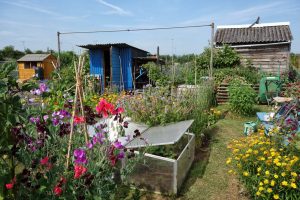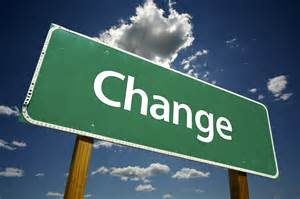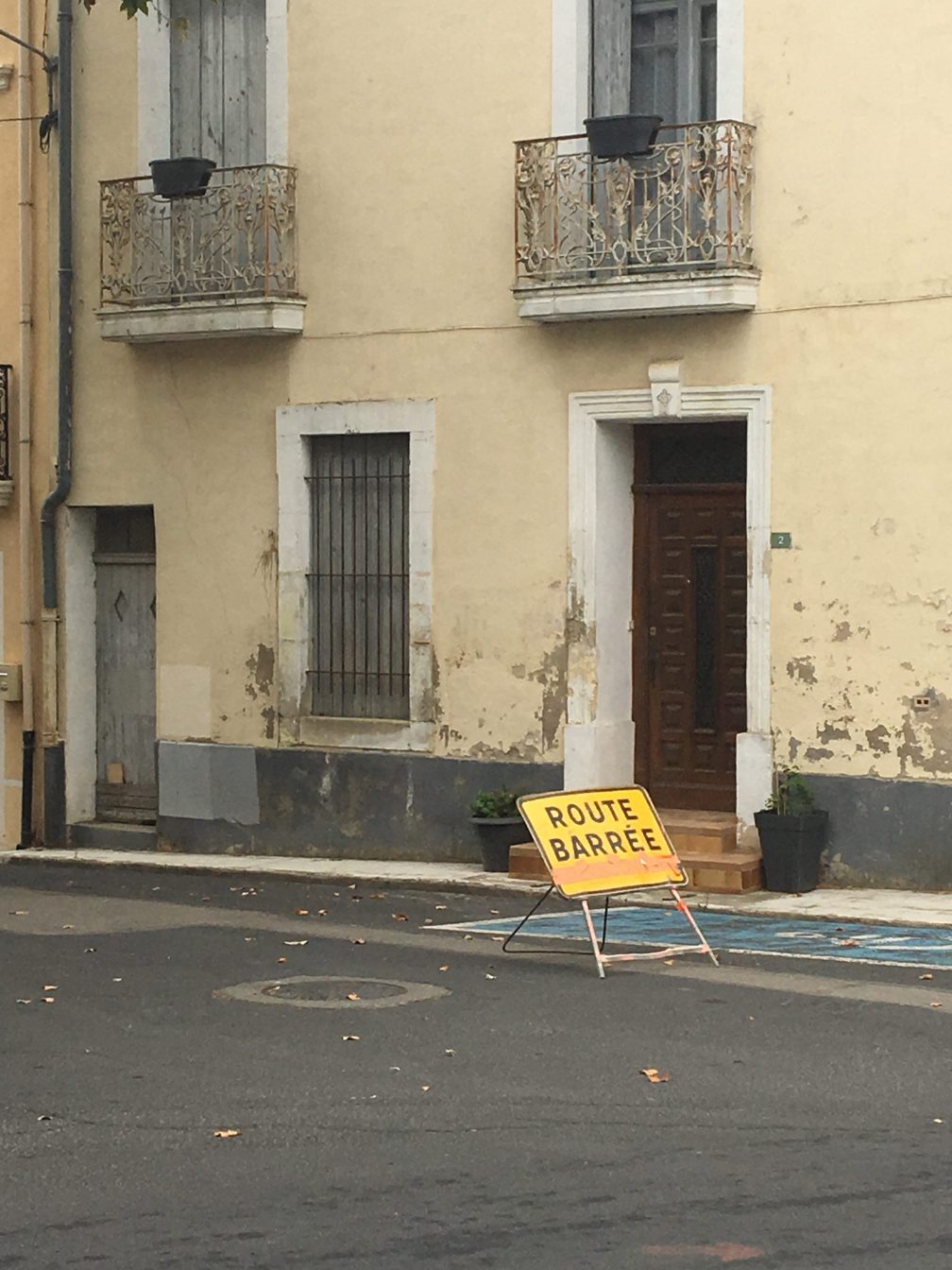Pray then like this:
“Our Father in heaven,
hallowed be your name.
Your kingdom come,
your will be done,
on earth as it is in heaven.
Give us this day our daily bread,
and forgive us our debts,
as we also have forgiven our debtors.
And lead us not into temptation,
but deliver us from evil.
For if you forgive others their trespasses, your heavenly Father will also forgive you, but if you do not forgive others their trespasses, neither will your Father forgive your trespasses.
Matthew 6:9-15
The only part of Jesus’ model for prayer – often referred to as the Lord’s Prayer – that is restated and expanded upon immediately following, is that which relates to forgiveness.
It seems that, if we take nothing else away from these few verses, the most important thing to understand is this: we must forgive others.
These last two verses have, for me, generally served as something of, what the French call, a Ralentisseur – speed bump.
You see the sign on the approach to a Ralentisseur, you know it’s coming, you know what you need to do: slow down, navigate it, and move on safely. No damage is done, the obstruction served its purpose; that is, you forgive, and you continue unperturbed. I have generally found that forgiveness is not a difficult process to navigate. That might perhaps be because I have been fortunate enough to have found no offense too great to quickly and readily forgive.
In the recent past, I have had to navigate some difficult and painful circumstances. As a result, there were some issues of forgiveness that were at risk of becoming less like a Ralentisseur, and more like a Route Barrée – road closed.
If you’ve ever encountered a Route Barrée on your travels, whether in the UK or abroad, you will know that, in the absence of a formal, well organised and well-signposted diversion route, it can be quite difficult to continue your journey without first stopping to make a new plan.
In the last twelve months, uncharacteristically for me, I have experienced something of what I would describe as a ‘Route Barrée paralysis’ beginning to build relating to some issues of forgiveness. That is, I felt unable to move on because I did not know what to do, or how to process forgiveness constructively in the circumstances.
In recent weeks, as I’ve sought to practice forgiveness, I’ve pushed through the Route Barrée. I say practice because, unless it’s the ‘small stuff’, I don’t believe it’s something we can just do without practice.
This blog is not about the circumstances that caused the obstruction; it identifies some of the lessons I’ve learned as I’ve sought to practice forgiveness.
There is no diversion route
There is no valid diversion around the Route Barrée. To seek a diversion route is to seek a route other than forgiveness. There is no diversion route around forgiveness – there is not meant to be.
I am confident that whatever else God might be doing, wherever else He might be leading, He will certainly not lead us around forgiveness. For God, forgiveness is a non-negotiable; He will not take us along a path that will distract us from forgiveness. He might be gracious enough to give us time and space to work out what forgiveness looks like, but not so much that we will be allowed to avoid it altogether.
We simply must forgive.
Forgiveness may be something that cannot be done lightly, quickly or easily. Nevertheless, it is a non-negotiable of the Christian life and it can be one of the most difficult things to work through.
I had never previously identified the propensity within myself for an unforgiving spirit, though it must have always been there. It’s likely there had never been cause or circumstance to identify it. I’m grateful now for circumstances that allowed me to see an aspect of my character in need of change.
At one point, forgiveness seemed such a distance away – a step too far. It seemed like it would take so much more determination than I had, or ever could have.
I asked God to give me what I could not find within myself: I asked Him to make me open to forgive; I asked Him to make me willing to forgive; I asked Him to give me the desire to forgive.
We are to be self-controlled, but not self-reliant. There is no need to try to muster from within what we do not have. We have a Helper, the Holy Spirit, to help us in our weakness, and this, for me, was a weakness.
In setting others free, I am set free
In his book, Total Forgiveness, R.T. Kendall very well explains a seemingly relentless recurring thought process that I too have struggled with:
“…as I found myself once again thinking about ‘what they did’ I would get churned up inside. I would say to myself, ‘Those people are going to get away with this. This is not fair. They won’t get caught. They won’t be found out. Nobody will know. This is not right.’ And that sweet peace left again.”
My experience is consistent with what R.T. Kendall describes. I found that when my thoughts turned back to what happened, my peace was displaced.
When I turned my thoughts away from what happened, and back towards God, to seek His peace and the desire to forgive, that peace was restored.
Even as I have written this blog, I have had to continually resist the urge to recall and dwell on the past. Forgiveness is an ongoing refusal to allow bitterness to be established; it is a continual refusal to dwell on what happened and a consistent turning to what’s good and right (Phil 4:8).
Peace cannot make a home where bitterness and resentment reside, and only one can occupy at any given time. For peace to make a long-term home within me, I would have to let go of bitterness and resentment, and for that, I would have to, as R.T. Kendall makes mention, ‘let them off the hook.’
Revenge is a desire that I’ve never felt. That said, I have felt the desire for something equally ugly: exposure of wrongdoing.
Thankfully that desire has been, and is continually being, displaced with inner peace, calm and order. My head has been lifted, allowing wrongs to be overlooked, and God’s peace has quenched that unhealthy desire in me.
I am beginning to enjoy the sweetness of peace, which has subdued the bitterness of resentment as I have pursued forgiveness.
Forgiveness always, reconciliation if possible
I stumbled for a period. I found it difficult to forgive because there had been no recognition of wrong, no apology, not even any communication. I felt that, in this case, it would be too difficult to forgive.
Forgiveness stalled because I had always experienced, and had only ever known, forgiveness and reconciliation to be one and the same. Up until that point in my life, the two had always been almost synonymous. I cannot recall a time when there had been forgiveness, and where reconciliation had not followed at the same time.
Feelings of futility set in when it was clear that that my appetite for reconciliation was not mutual. In my mind, if reconciliation had been ruled out, then so too had forgiveness.
Over time, and with much prayer and soul-searching, this tangle in my heart and mind began to unravel.
Reconciliation takes two or more; it is therefore unachievable as a solo effort. For me, this led to feelings and thoughts of hopelessness and futility.
Resentment and bitterness grow well in the soil of hopelessness and futility.
I was deeply troubled by the discord, but still did not see that forgiveness and reconciliation are not synonymous. R.T. Kendall helped me to make a distinction between the two:
“An injured person can forgive an offender without reconciliation. It is wonderful indeed should reconciliation follow, but this must not be pressed in some cases. Some things can never be the same again. It takes two to reconcile, a total willingness on both parts…
One must totally forgive those who will not be reconciled. This therefore refers to what we do in our hearts. If there is no reconciliation, then there can still be total forgiveness”
The truths set out in R.T. Kendall’s book changed my course altogether. It is possible to forgive, even when it is apparent that there is no appetite for reconciliation.
Unlike reconciliation, forgiveness does not require two or more.
Hope deferred makes the heart sick (Proverbs 13:12), and hoping for reconciliation had done just that. But hope was restored when I recognised that it was possible to forgive and move on without reconciliation.
Even in the absence of any recognition of any wrong, or meaningful communication, I could still choose to forgive.
I no longer needed to wait for anyone to do anything else – it was all down to me.
Mercy for ourselves, justice for others
Why was that desire in me for exposure, so wrong?
Because exposure is most often God’s business, not ours [that’s not to say there are not exceptions, such as criminal wrongdoing].
I am not entitled to play God: I cannot see what God sees and I do not understand like God does, so how can I stand in judgement of others like only God can? That’s not my place.
Judge not, that you be not judged. For with the judgment you pronounce you will be judged, and with the measure you use it will be measured to you.
Matthew 7:1-2
Being judged or criticised is painful, whether it is totally true, totally false, or somewhere in between, though I’m not sure which is more painful.
The passage above, from Matthew 7, is sobering: If you don’t like being judged or criticised, don’t judge or criticise. The degree to which you resist the temptation to judge will be the degree to which you will be largely spared being judged.
Elsewhere, Jesus states it even more plainly, also making the connection to forgiveness:
Judge not, and you will not be judged; condemn not, and you will not be condemned; forgive, and you will be forgiven;
Luke 6:37
To withhold judgement and criticism whenever possible, leaving it to God, and go on forgiving, is the way we are called to live.
Be merciful, even as your Father is merciful.
Luke 6:36
To do so is to pursue gentleness, graciousness, humility; this is especially true the more grievous we believe the offence or wrongdoing to be. To do so is to show mercy – the very thing we so often want for ourselves, and yet would often all too readily withhold from others.
To judge, which can mean ‘to make a distinction’, is often prudent and wise, but not where it would extend to exposing others. In the call to avoid judging others, we are not being called to not notice wrong. We can notice and recognise what’s wrong, without judging and without exposing, which I have found difficult for complex reasons.
The world would be a nicer place to live if we were each quick to show mercy to others and quicker to examine ourselves than others.
Trust God
We are free to show mercy – and pursue gentleness, graciousness and humility – because we can be confident that God sees and knows, and we know that He is just.
Any judgement that needs to be exercised will be shown by God – in His timing, in His way – far better than anything we could or should do by taking it into our own hands.
It is an often-misused soundbite, but in the context of choosing to not judge others, I found the expression, ‘Let go and let God’, helpful.
We are frequently reminded by God ‘my thoughts are not your thoughts, neither are your ways my ways’ (Isaiah 55:8). We choose to exercise faith when we actively recognise that God will do what only God can do, and then rest in that knowledge.
Love keeps no record of wrongs
We are called to love one another well, and forgiveness is an expression of love.
A connection between love and forgiveness is found in 1 Corinthians 13: love ‘keeps no record of wrongs’.
Forgiveness? Maybe. But how does one keep no record of wrongs? How do we ‘un-remember’?
This has been a huge challenge for me, believing there had been too much history to just strike off the wrongs.
But that ‘striking off’ is very thing that Jesus Christ has done for me in keeping no record of my wrongs – the very same wrongs that bore down on him and nailed him to the cross.
As a verse from the hymn by Stuart Townend reminds me:
Behold the man upon a cross,
My sin upon His shoulders;
Ashamed, I hear my mocking voice
Call out among the scoffers.
It was my sin that held Him there
Until it was accomplished;
His dying breath has brought me life –
I know that it is finished.
It was my sin – my wrongs – upon His shoulders; my wrongs that held Him there.
In dying the death He died, Jesus fully accomplished paying the penalty for my wrongs. I have been fully ‘let off the hook’. Knowing that I am totally forgiven, how could I withhold forgiveness, having freely received a greater forgiveness for much greater wrongdoing?
Whenever I am inclined to recall to memory again those wrongs committed against me, I turn back to the cross to see that my wrongs have been remembered no more.
It’s this truth that helps me to keep no record of others’ wrongs.
Our mandate is to forgive as we have been forgiven:
Be kind to one another, tenderhearted, forgiving one another, as God in Christ forgave you.
Ephesians 4:32
Put on then, as God’s chosen ones, holy and beloved, compassionate hearts, kindness, humility, meekness, and patience, bearing with one another and, if one has a complaint against another, forgiving each other; as the Lord has forgiven you, so you also must forgive.
Colossians 3:12-13
I simply must forgive – both myself and others – and go on forgiving, practicing the lessons I’ve learned, and learning new ones, whilst extending grace to others as they no doubt do the same.
It’s only as part of a community of like-minded people that we will grow and mature together as Christ intends.
If you are struggling with an issue of forgiveness, or rather, unforgiveness, I wholeheartedly recommended the book by R.T. Kendal.
Allez! Tout droit!

 We’ve all been given many and varied allotments – discrete gifts to be cultivated and used. These allotments take many forms, two of the most obvious being time, and money. I believe the allotments we each have at our disposal are given to us by God, not be wasted or allowed to rest dormant, but rather to be used for the good of our neighbour and for the glory of God. Neighbour is meant in the broadest sense of the word; our neighbour is not just the person living next door to us. Our neighbour could be a close friend, or a stranger on the street; it is the person before us or alongside us in any situation or context of life.
We’ve all been given many and varied allotments – discrete gifts to be cultivated and used. These allotments take many forms, two of the most obvious being time, and money. I believe the allotments we each have at our disposal are given to us by God, not be wasted or allowed to rest dormant, but rather to be used for the good of our neighbour and for the glory of God. Neighbour is meant in the broadest sense of the word; our neighbour is not just the person living next door to us. Our neighbour could be a close friend, or a stranger on the street; it is the person before us or alongside us in any situation or context of life. Suzanne and I have invested what feels like some of the prime years of our life together – the decade in which our children were growing from birth – at Kings Church. Those years have, for the most part, been some of our best. Developments in the recent past, however, have resulted in the most painful and bewildering experience we have ever known in Church life.
Suzanne and I have invested what feels like some of the prime years of our life together – the decade in which our children were growing from birth – at Kings Church. Those years have, for the most part, been some of our best. Developments in the recent past, however, have resulted in the most painful and bewildering experience we have ever known in Church life.

